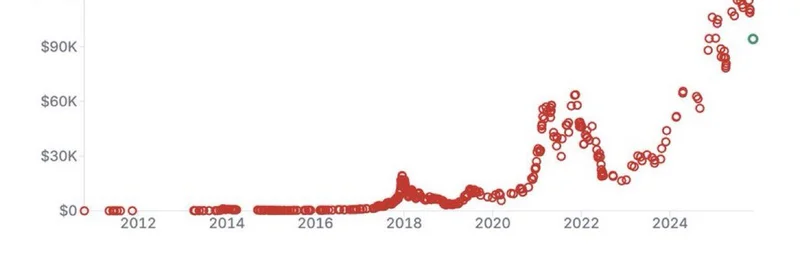In the fast-paced world of DeFi and meme tokens, staying ahead means mastering market analysis. Recently, H4shirama, a prominent DeFi researcher known on X as @in2nguyen, shared a series of slides from an advanced bootcamp he presented with @MeteoraAG. This thread outlines his step-by-step process for evaluating and entering positions in DLMM plays—Dynamic Liquidity Market Makers, a key mechanism in modern DEXes like those on Solana.
DLMMs allow for more efficient liquidity provision by dynamically adjusting price ranges, which can be a game-changer for traders dealing with volatile assets like meme tokens. H4shirama's approach isn't one-size-fits-all, but it provides a solid framework for assessing opportunities before and during trades. Let's break down the key slides and what they mean for blockchain practitioners.
Starting with the Basics: Bootcamp Overview
The bootcamp kicks off with a focus on market analysis for 2025, emphasizing advanced techniques tailored to DeFi environments.
This introductory slide sets the stage, presented by H4shirama, who brings experience from projects like LP Army, Fabrique, Infinite, and Starseed.
Step 1: Initial Research and Token Evaluation
H4shirama dives into the fundamentals, starting with token research. This involves checking the project's background, team credibility, and community buzz—crucial for meme tokens where hype can drive prices.
He recommends tools like DEX screeners and on-chain analytics to spot early signals, ensuring you're not jumping into a rug pull.
Step 2: Liquidity Analysis
Next up is a deep dive into liquidity pools. For DLMMs, understanding pool depth and fee structures is key to minimizing slippage in trades.
This step helps identify stable pools versus those prone to manipulation, especially relevant for low-cap meme tokens.
Step 3: Volume and Momentum Checks
Volume tells the story of real interest. H4shirama outlines how to track trading volume spikes and momentum indicators to time entries.
Integrating this with social sentiment from platforms like X can amplify insights for meme-driven assets.
Step 4: Risk Assessment
No analysis is complete without weighing risks. This slide covers impermanent loss in liquidity provision and market volatility.
For meme token enthusiasts, this means balancing high-reward plays with protective strategies like stop-losses.
Step 5: Position Entry Strategies
Here, H4shirama shares tactics for entering positions, including scaling in and monitoring oracle prices.
This is where DLMM's dynamic ranges shine, allowing traders to optimize for expected price movements.
Step 6: Ongoing Monitoring
Once in a position, the work doesn't stop. Continuous monitoring of metrics like TVL (Total Value Locked) and whale activity is essential.
Tools like Dune Analytics or Solana explorers can help here, keeping you agile in the meme token space.
Step 7: Exit Planning
Knowing when to exit is as important as entry. This involves setting profit targets and watching for reversal signals.
H4shirama stresses data-driven decisions over emotions, a common pitfall in volatile markets.
Advanced Tools and Integrations
The bootcamp touches on integrating advanced tools, from APIs to custom scripts for real-time data.
For Solana-based meme tokens, leveraging Meteora's ecosystem can provide an edge.
Case Studies and Examples
Real-world examples illustrate the process, drawing from past DLMM successes.
These help translate theory into practice for traders.
Common Pitfalls to Avoid
H4shirama warns against common mistakes like over-leveraging or ignoring on-chain red flags.
This is gold for anyone diving into meme token liquidity provision.
Wrapping Up: Future Outlook for 2025
The final slide looks ahead to 2025 trends in DeFi and DLMMs.
With evolving tech, staying informed through resources like this bootcamp is key.
If you're into meme tokens or DeFi on Solana, check out the original thread for more details. At Meme Insider, we're all about equipping you with the knowledge to navigate these waters—whether you're a newbie or seasoned trader. What are your go-to strategies for market analysis? Share in the comments!



